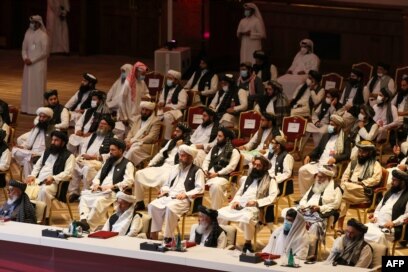Author: Frud Bezhan
Affiliation: Radio Free Europe/Radio Liberty
Organization/Publisher: Radio Free Europe/Radio Liberty
Date/Place: September 16, 2020/Prague, Czech Republic
Type of Literature: Report
Word Count: 2100
Keywords: Afghanistan, Taliban, Kabul administration, NATO, US, Pakistan, Finances, War-torn country, conflict
Brief:
This so-called confidential report prepared by NATO and obtained by “Radio Free Europe” claims to be based on interviews of Taliban insiders and their associates who know the financial system of the government turned armed-resistance group. After the Taliban fought and defeated the USSR armies in Afghanistan – known as the “graveyard of civilizations” –it formed a government of its own which was soon attacked by the occupying US forces. The country has witnessed war until the US formally accepted legitimacy of the Taliban in February of this year and signed a peace pact with its leadership. Now the process has entered a crucial phase where all sections of Afghan society are talking to each other to set a future for their country. At this critical juncture, this confidential report has been released and publicized to give an impression that the Taliban is involved in money laundering and illegal drug sales. Without any solid evidence, it also links the Taliban’s economic independence to its support of Al Qaeda. However, the report acknowledges that the Taliban has formed a system of its own and aims to achieve independence from foreign funding. The report identifies that the Taliban earned USD $1.6 billion last year through its various affairs. Using derogatory “bad neighbor” terminology, the report alleges that the Taliban is receiving funding from Pakistan, Iran, and Russia. Although the US claimed at the outset of the intra-Afghan dialogue that it won’t impose democracy on Afghanistan, this biased report filled with stereotypes not supported by evidence is an indication that the Afghan peace process will see many attempts, direct and indirect, for it to fail in achieving progress.
By: Riyaz ul Khaliq, CIGA Non-Resident Research Associate




